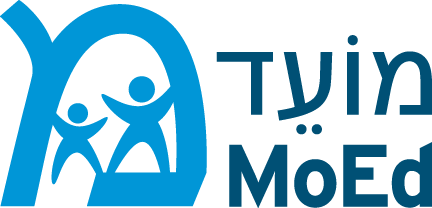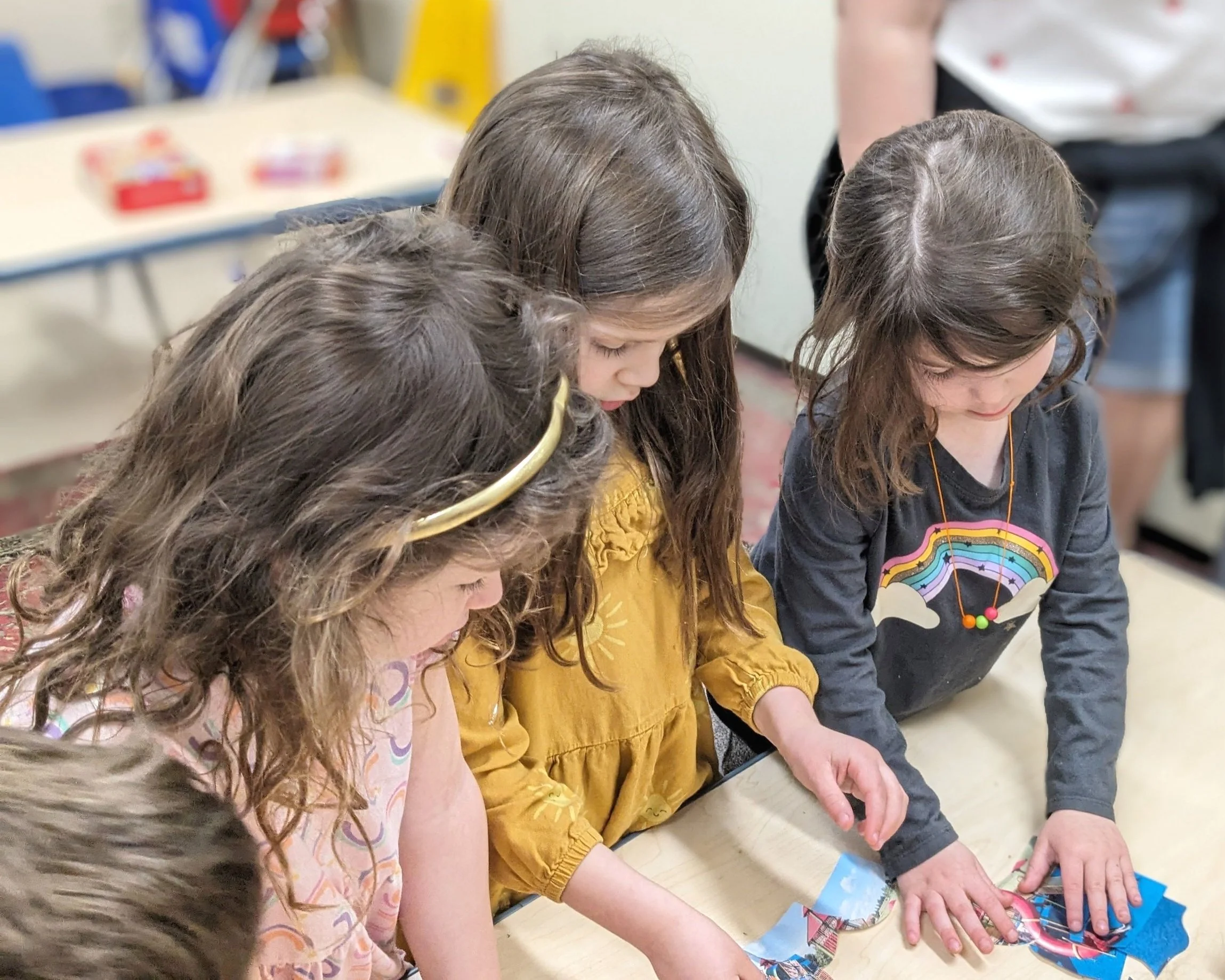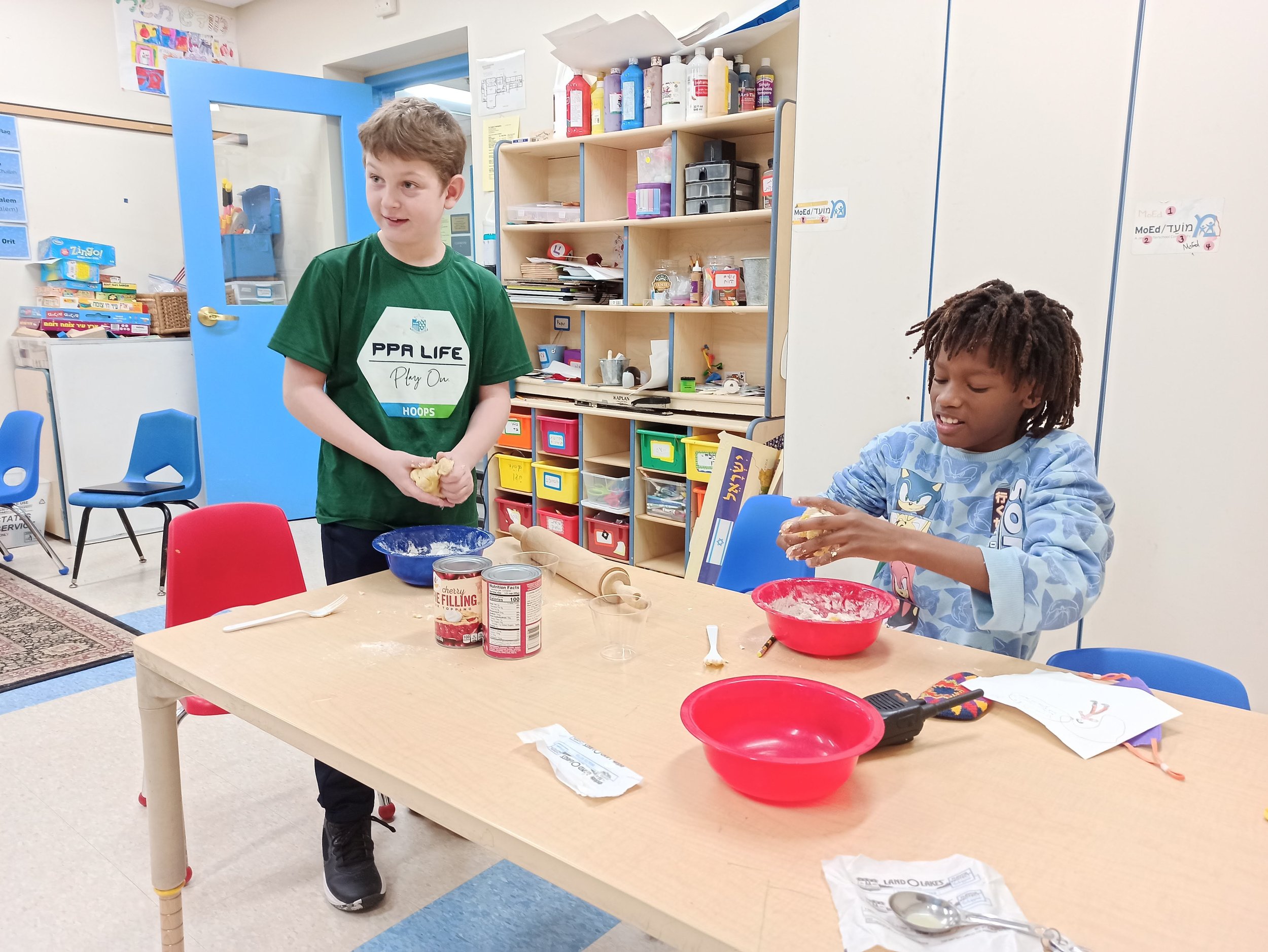Afterschool Program
MoEd includes play–time to encourage children to relax and connect with their Jewish peers. Our Hebrew and Judaics program also emphasizes learning through play.
Our Hebrew study takes an immersive approach to Modern Hebrew language, made possible by our native Hebrew speaking staff.
Our Judaics curriculum includes such topics as Jewish holidays, history, and Jewish texts, with emphases that vary from year to year.
We explore Israel through our staff (all Israelis) and combine elements of Hebrew and Judaics to provide an authentic learning experience.
Each topic we study is approached in many ways, including through songs, games, creative activities, and stories, with a strong emphasis on engaging the children and giving them ownership of their learning.
““We don’t know what we’d do without MoEd. The kids love it and they’ve made some great friends.””
Curriculum
MoEd’s primary goal is to provide the kids with a “Jewish Tool Box” so that our graduates will have an age appropriate understanding of the fundamental building blocks of Judaism, enabling them to make informed decisions about their own approach to Jewish practice and communal involvement as they grow older.
We nurture children’s curiosity and encourage them to ask endless questions. We approach Jewish topics in a fun, loving, and engaging way and teach them to celebrate being Jewish.
We stress and promote understanding as the foundation or framework, as a first step in acquiring new knowledge.
We involve the kids in as many tasks as possible, from the point of decision making to when the task is carried out; we want them to “own” the task, the process, and the outcome.
The community is an important part of the children’s education. Being surrounded by other Jewish children from different congregations, affiliations and approaches is a great asset. We are all very different yet very much the same.
We strive to provide in-depth knowledge, enrich the children’s understanding and teach them to address each topic, leaving no questions unanswered.
“While we gather all the knowledge in the room and approach each topic from varying points of view, we understand that being Jewish doesn’t have one color but many shades or options, and that each of us can belong, and yet follow his/her own heart and convictions.”
Typical MoEd Afterschool Schedule
ARRIVAL AND TRANSITION/PLAYTIME
Children arrive after a full school day and need some time to unwind before engaging in additional learning and focused activities. Outdoor time is also a time for children to bond with each other.
SNACK TIME
Children enjoy a healthy snack and chat together in Hebrew. Key vocabulary terms (for food items, actions, requests, and comments) arise during snack time and reappear during the course of the day. A typical snack is hummus, carrot sticks, apple slices, and milk.
CENTERING ACTIVITY
Teachers and children sit together to share the day's topic and discuss upcoming activities.
LEARNING ACTIVITY
Children and teachers participate in two activities together. Each activity is approximately 20 minutes long, and as a rule we try for one seated activity and one that involves more moving around. As such, one activity emphasizes a specific topic vocabulary, while the other activity allows children to explore the topic through a different medium.
PLAYTIME OR STUDY HALL
At the end of the MoEd day, children with homework have an opportunity to sit and work together. The "study hall" experience, with teachers standing by, is a significant bonding opportunity for the children. Children without homework may do an art project, play quietly, or keep their classmates company.
By the end of the MoEd day, children are hungry again. A light snack (e.g. crackers and hummus with sliced fruit) is put out during homework time for children who need a quick bite. If children have any food allergies, we can work together with families to accommodate.


